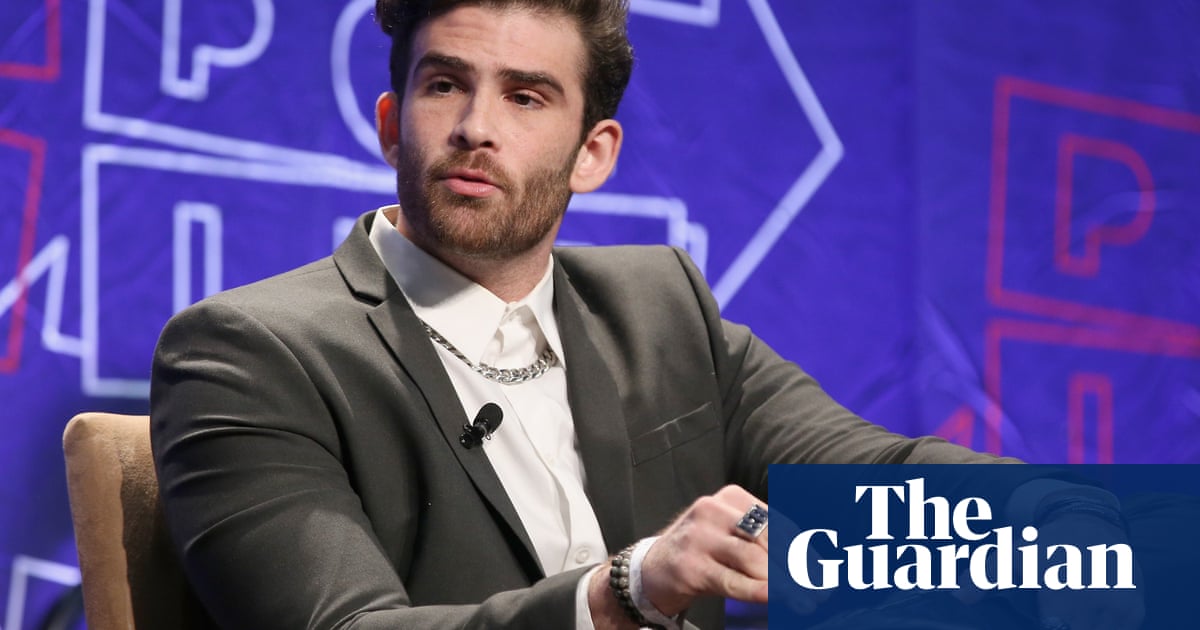The Incident at O’Hare: Hasan Piker’s Troubling Experience with Customs
Hasan Piker, a prominent progressive political commentator known for his engaging commentary on platforms like YouTube and Twitch, found himself in a disconcerting situation upon his return to the United States from France. As Piker took the customary route through customs at Chicago O’Hare Airport, he was stopped by US Customs and Border Protection (CBP) agents who questioned him for nearly two hours about his political opinions, particularly regarding Donald Trump and Israel’s policies in the Gaza conflict.
Recounting the Experience
In his livestream the following day, Piker shared the details of this unsettling encounter. He explained that after being led to a private room, he was subjected to intense questioning that felt far from routine. “The goal here is to put fear into people’s hearts,” Piker asserted. He expressed his belief that such interrogations serve to instill a chilling effect on free speech, prompting people to self-censor their thoughts and expressions.
Despite the intimidating nature of the encounter, Piker stated unequivocally that it would not deter him from speaking candidly about his views. “Does this stop me from saying whatever the fuck I want to say? Of course not,” he remarked. His intent in sharing the experience was not merely to highlight his own discomfort but to shine a light on what he perceived as government overreach.
An Unexpected Target?
Piker, who was re-entering the US on a trip that he had taken for family reasons—a celebration of Mother’s Day—believed he was singled out due to his high-profile status as a leftist commentator. “I think they did it because they know who the fuck I am,” he said, reflecting on the incident. The implications of his statement suggest a worrying trend, where public discourse might be monitored, and dissenters could face repercussions.
Government’s Response
In response to Piker’s claims, Tricia McLaughlin, a spokesperson for the Department of Homeland Security, quickly dismissed the allegations of politically motivated targeting. She labeled Piker’s assertions as “baseless,” insisting that the process he underwent was a standard procedure applied to any traveler. A CBP official echoed this sentiment, calling the suggestion that Piker’s political beliefs influenced his inspection “baseless.”
However, the discrepancy between the government’s statements and Piker’s experiences raises questions about the transparency of such procedures. While McLaughlin stated that he was subjected to a lawful process, Piker characterized the event as much more than a routine inspection.
The Nature of the Interrogation
During the questioning, Piker described how the officer seemed particularly interested in his views on the Israeli-Palestinian conflict, specifically his criticisms of Israel’s actions in Gaza. He recounted a gripping exchange where the officer asked if he supported Hamas and whether he viewed them as a resistance group. In response, Piker reiterated his stance as a pacifist, emphasizing the need to end the cycle of violence.
The persistent nature of the questioning left Piker feeling that it constituted a violation of his First Amendment rights. He pointed out that the interrogation felt more like a targeted investigation rather than a casual inquiry.
A First-Time Experience with Global Entry
Interestingly, this was Piker’s first time using the Global Entry program, which is designed to expedite the travel experience for trusted travelers. Ironically, the encounter turned what should have been a seamless re-entry into a prolonged ordeal. Thankfully, while neither his phone nor laptop was searched, the circumstances surrounding the encounter left a lasting impression on him.
Reactions from Advocacy Groups
Piker’s experience drew immediate reactions from various advocacy groups concerned about freedom of speech and press rights. Chip Gibbons, the policy director for Defending Rights & Dissent, voiced alarm at the notion that political commentators are being targeted at borders for their First Amendment-protected activities. Such actions, he noted, represent a significant abuse of power.
Similarly, Alex Peter, an attorney and digital content creator, shared his concern over the implications for free expression and civil liberties. He connected Piker’s situation to broader political trends, warning that government scrutiny of dissent and criticism could lead to a chilling landscape for free speech.
Implications of the Experience
Piker’s ordeal serves as a cautionary tale in contemporary America, where the interplay of politics and personal expression often leads to contentious debates about freedom and government authority. As public figures navigate their roles in society, incidents like this highlight the complexities and challenges they face—especially those who challenge the status quo.
In a time where political discourse can be polarizing, Piker’s experience underscores the need for vigilance in protecting free speech and championing the rights of individuals to voice dissent, irrespective of their political affiliations.


